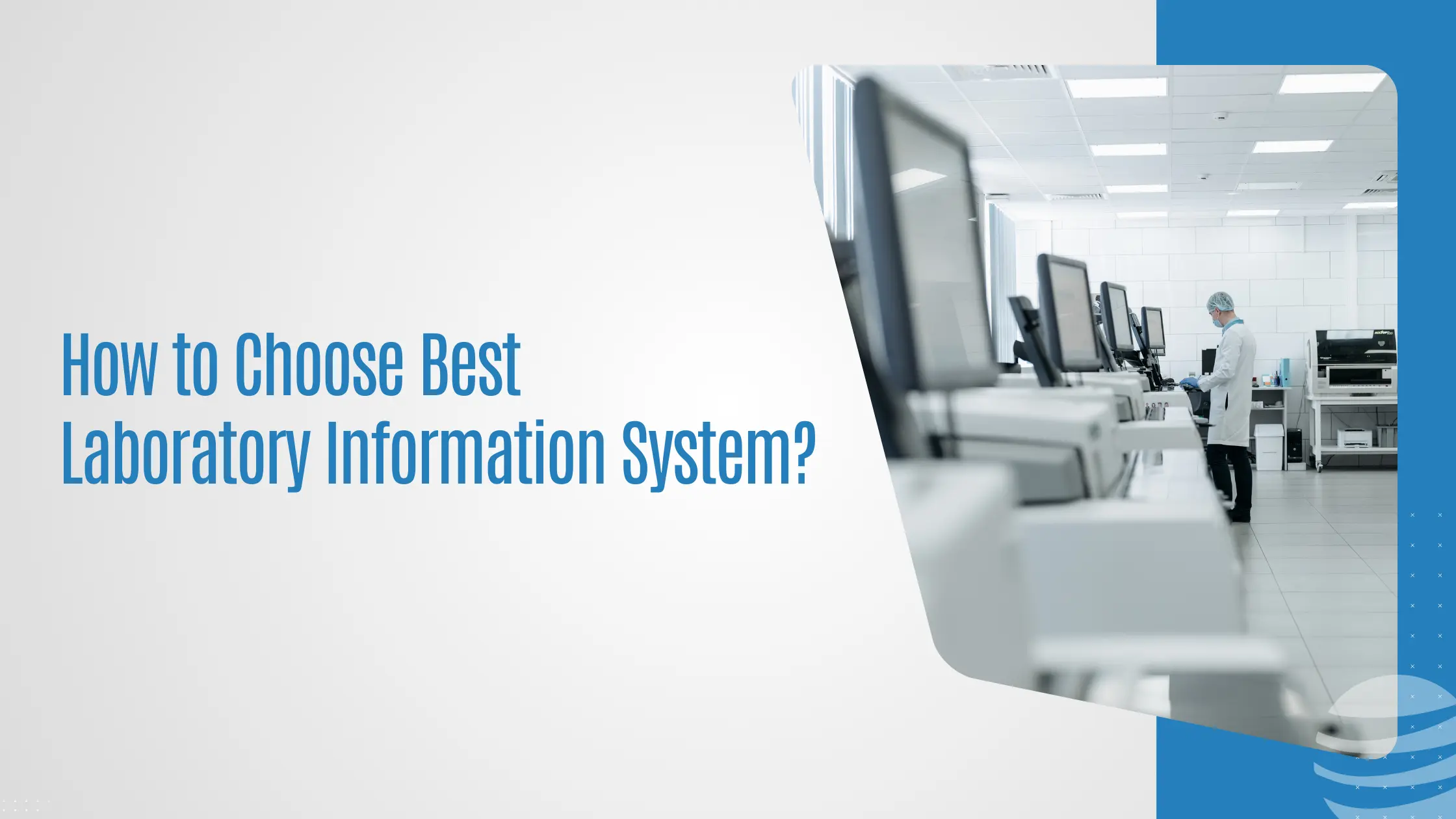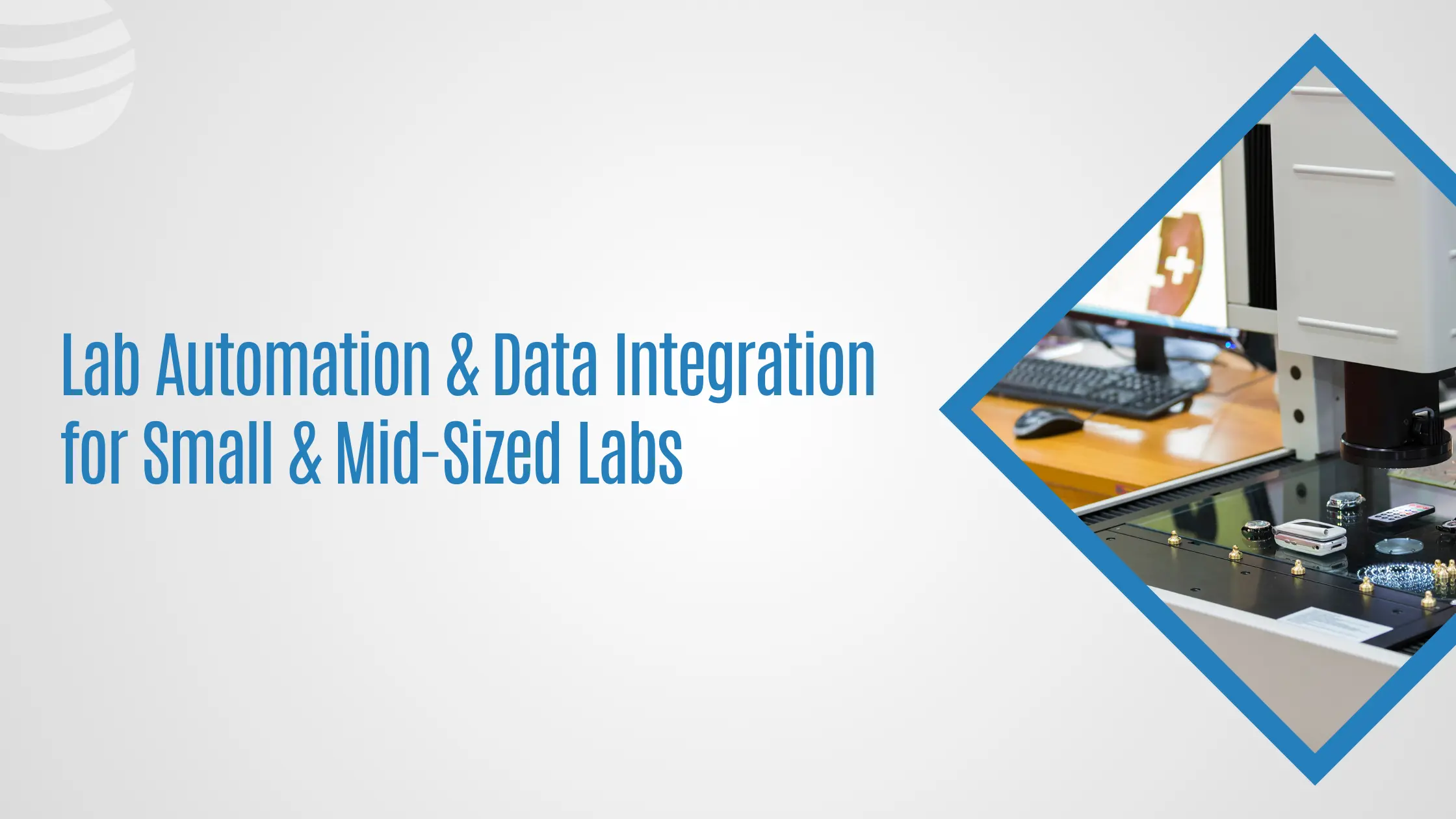

How to Choose Best Laboratory Information System?
In today’s quickly changing healthcare environment, laboratories must streamline operations and enhance accuracy to satisfy increased demand. A well-implemented Laboratory Information System (LIS) is critical in achieving these objectives. It guarantees effective data management, seamless workflow integration, and adherence to regulatory standards. However, choosing the correct LIS necessitates careful evaluation of issues relevant to your lab’s requirements. This article will explain how to choose the best LIS while adhering to modern healthcare and operational requirements.
Introduction to Laboratory Information Systems
A Laboratory Information System (LIS) is specialized software used to manage clinical and research laboratory activities. LIS systems manage a wide range of functions, from sample tracking to report generation, hence boosting laboratory process performance and efficiency. They also play an important role in achieving compliance standards, maintaining data integrity, and assuring patient safety by delivering accurate and timely results.
With so many options on the market, how do you select the best LIS for your laboratory? By considering essential criteria such as scalability, functionality, and integration, you can find the LIS that not only meets your current needs but also accommodates future growth.
Key Considerations for Choosing the Best LIS
1. Understanding Your Lab’s Requirements
Before evaluating different LIS options, it’s crucial to assess your lab’s specific needs. Are you operating a small physician office lab, a large hospital laboratory, or a specialized reference lab? Each type of lab has unique workflows, volume of testing, and regulatory needs.
Key factors to consider:
- Lab size and testing volume: Will the LIS scale with your growth?
- Type of tests performed: Does the system support the analyzers and instruments used in your lab?
- Workflow complexity: Can the LIS manage your end-to-end processes from sample collection to result reporting?
2. Scalability and Flexibility
As your lab grows, your LIS should be able to scale with increased demand. Choose a system that offers flexibility and modularity. This allows you to add new functionalities over time, such as interfacing with more analyzers, adding custom reports, or integrating with external healthcare systems like electronic health records (EHR) or billing software.
Look for:
- Modular architecture: Enables you to start with essential features and scale up.
- Customization options: Tailor workflows, reports, and alerts to your lab’s specific needs.
- Cloud or on-premises deployment: Depending on your resources and operational scale, opt for a deployment model that fits your infrastructure.
3. Regulatory Compliance and Data Security
Laboratories are subject to stringent regulations and compliance requirements, such as CLIA (Clinical Laboratory Improvement Amendments) and HIPAA (Health Insurance Portability and Accountability Act) in the United States. Choosing an LIS that is compliant with local and international standards is essential to avoid costly penalties and ensure patient data security.
Focus on:
- Compliance features: Ensure the LIS supports necessary regulatory compliance.
- Audit trails: Helps track all data entries and changes for accountability.
- Data encryption: Ensures that patient data is secure, both in storage and transmission.
4. Integration with Lab Analyzers and External Systems
A major consideration when selecting an LIS is its ability to seamlessly integrate with your laboratory’s analyzers and external systems such as EHR, laboratory billing software, and healthcare information exchanges (HIE). The LIS should support standard data formats like HL7 and ASTM for smooth communication between devices and systems.
Integration considerations:
- Interoperability: Supports integration with a wide range of analyzers and instruments.
- Bidirectional interfaces: Enables the LIS to send and receive data from analyzers and external systems.
- Data standardization: Look for systems that can handle multiple data formats to ensure consistent and accurate results.
5. Ease of Use and Training
A user-friendly interface is critical to ensuring your team can quickly adapt to the new system. The best LIS solutions provide intuitive dashboards, customizable workflows, and clear navigation to reduce the learning curve and improve efficiency.
Consider:
- User interface (UI) design: Clean, easy-to-navigate interface helps reduce errors.
- Training and support: Ensure the vendor offers comprehensive training and ongoing technical support.
6. Cost and Return on Investment (ROI)
Budget is always a key factor in choosing an LIS. While some systems may seem cost-prohibitive initially, it’s essential to assess the long-term return on investment. A more expensive system may offer greater efficiencies, reduce manual errors, and lower operational costs over time.
Evaluate:
- Initial and ongoing costs: Factor in software licensing, hardware, support, and maintenance fees.
- Potential savings: A streamlined LIS can save time, reduce errors, and improve overall lab productivity.
- ROI period: Calculate the time it will take for the system to pay for itself through efficiency improvements and cost savings.
7. Vendor Reputation and Support
Partnering with a reliable and experienced vendor is just as important as selecting the right LIS software. A reputable vendor will not only provide a robust LIS solution but also offer comprehensive support, updates, and scalability options. Review their customer service records and responsiveness to ensure you have the support you need when issues arise.
Questions to ask:
- Experience in the industry: How long has the vendor been serving laboratories?
- Customer support: Is technical support available 24/7?
- Client feedback: What do other laboratories using the system say about their experience?
8. Performance and Reporting Features
A good LIS should provide insightful analytics and reporting capabilities to track performance metrics, identify trends, and ensure quality control. Customizable reports can help labs monitor key performance indicators (KPIs) like turnaround time, error rates, and reagent usage.
Look for:
- Real-time reporting: Offers immediate insights into lab operations.
- Customizable report templates: Tailor reports to meet specific operational and regulatory requirements.
- Data visualization tools: Easily interpret data through charts and graphs.
9. Automation and Workflow Optimization
Laboratory automation is becoming increasingly important for improving productivity and reducing manual errors. A well-designed LIS should incorporate automation features such as auto-validation of results, automated workflow routing, and integration with robotic process automation (RPA).
Benefits of automation:
- Reduced manual tasks: Free up staff time for higher-level work.
- Improved accuracy: Minimize human errors in data entry and result validation.
- Faster turnaround time: Streamlined workflows can improve test processing speed.
10. Future-Proofing Your LIS
Technology in healthcare is advancing rapidly, and your LIS should be able to keep pace with future developments. Consider whether the system is adaptable to new technologies such as artificial intelligence (AI), machine learning (ML), or advanced analytics that could offer enhanced diagnostic capabilities in the future.
Consider future capabilities like:
- AI-driven insights: Can the system leverage AI to improve diagnostics?
- Integration with emerging technologies: Ensure the LIS can adapt to new healthcare innovations.
- Regular updates: Does the vendor provide frequent updates to improve performance and add new features?
Conclusion
Choosing the best Laboratory Information System is a critical decision that will impact your lab’s efficiency, accuracy, and compliance. By thoroughly evaluating your lab’s needs, ensuring scalability, prioritizing integration, and focusing on user-friendly, secure, and compliant software, you can select an LIS that not only meets your current requirements but also positions your lab for future growth.
Providers like Prolis help various labs, clinics and other healthcare services with a highly advanced, functional, resourceful, and feature-rich. Laboratory information system that improves the overall proficiency of your laboratory and also works as an ideal laboratory billing software.
To know more about Prolis software, feel free to contact the company.


